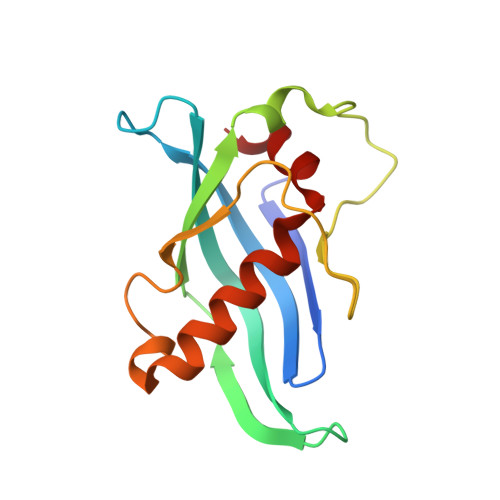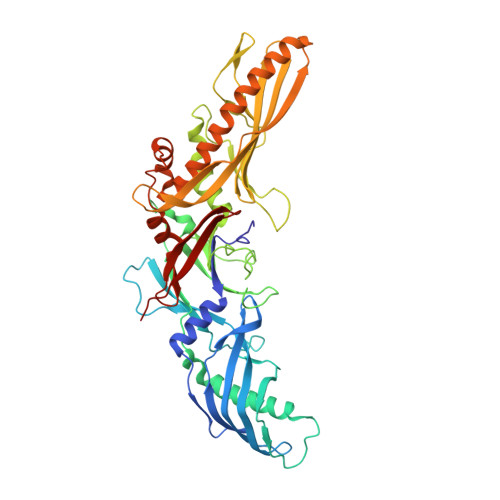Crystal structures of OrfX1, OrfX2 and the OrfX1-OrfX3 complex from the orfX gene cluster of botulinum neurotoxin E1.
Gao, L., Lam, K.H., Liu, S., Przykopanski, A., Lubke, J., Qi, R., Kruger, M., Nowakowska, M.B., Selby, K., Douillard, F.P., Dorner, M.B., Perry, K., Lindstrom, M., Dorner, B.G., Rummel, A., Jin, R.(2023) FEBS Lett 597: 524-537
- PubMed: 36653893
- DOI: https://doi.org/10.1002/1873-3468.14576
- Primary Citation of Related Structures:
8FBD, 8FBE, 8FBF - PubMed Abstract:
Botulinum neurotoxins (BoNTs) are among the most lethal toxins known to humans, comprising seven established serotypes termed BoNT/A-G encoded in two types of gene clusters (ha and orfX) in BoNT-producing clostridia. The ha cluster encodes four non-toxic neurotoxin-associated proteins (NAPs) that assemble with BoNTs to protect and enhance their oral toxicity. However, the structure and function of the orfX-type NAPs remain largely unknown. Here, we report the crystal structures for OrfX1, OrfX2, and an OrfX1-OrfX3 complex, which are encoded in the orfX cluster of a BoNT/E1-producing Clostridium botulinum strain associated with human foodborne botulism. These structures lay the foundation for future studies on the potential roles of OrfX proteins in oral intoxication and pathogenesis of BoNTs.
- Department of Physiology and Biophysics, University of California, Irvine, CA, USA.
Organizational Affiliation:


















